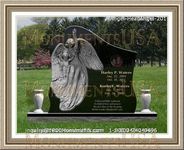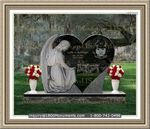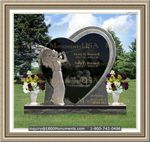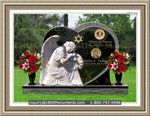|
Facts You Need To Know About A Memorial Epitaph
Setting up funeral arrangements is a job that entails a long list of details. These are usually left to a responsible member of the deceased's family or various tasks may be assigned to several individuals for less stress on one mourner. A key part of this duty is composing an epitaph worthy of the person it will represent.
This is a brief statement or phrase, sometimes a poem or prose, that is inscribed on an individual's headstone or commemorative plaque. It says something about the person it represents. There are several different forms this tribute can take, mostly dependent on the deceased's personality, life choices and who is writing it.
There are some things that practically each grave marker will have in common. Nearly all will contain the person's full name and the dates that encompassed their life. Though a good many individual's choose to stop at just that basic information, others will opt to say a little extra by including statements, sentiments or personal remarks.
These additional statements are quite often short sentiments about how much the individual will be missed, how special they were or wishes for a peaceful afterlife. They might list their familial positions such as child, sibling, parent or spouse, or it may be a record of their time in the military or other organization. Spiritual scripture is also very commonly used.
A lot of people are choosing to design their own headstone. The primary benefit to this is that they can be sure that their last impression will be one they are comfortable leaving. It allows a bit of freedom, for example, for a person who was known for their sense of humor to be entertaining and witty with their final remarks.
Others may take this opportunity to provide a last bit of sage advice to all who visit their stone. This may be a suggestion to live life fully or any other lesson they might have learned while alive. There are no real rules when it comes to what one can have inscribed on their grave marker.
|
|



























